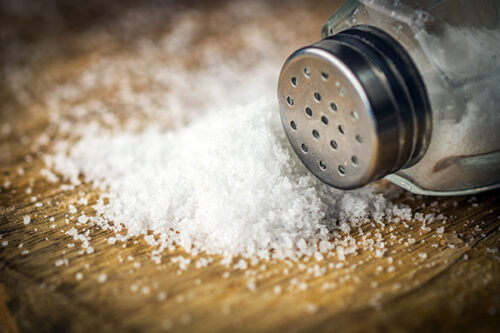Common Health Problems: Atherosclerosis
Cause: Heredity may play a role in the development of atherosclerosis and associated complications (heart attacks and strokes), but little attention should be given to this factor when planning therapy. First of all, heredity is obviously not an overriding factor, since whole populations of people in the non-American world (as in most Asian and African countries) show no clinical evidence of atherosclerosis–and do not suffer heart attacks or strokes. Their genes are not protecting them–if they change to an American diet, they soon develop this disease in epidemic proportions, just as Americans do. (Another important reason why heredity should be given little or no attention is the obvious one: you can’t do a thing about it.)
An atherosclerotic plaque is not made of concrete. It can be removed rather easily. So when you start controlling your knife and fork, keeping them from scooping up gobs of grease and clumps of cholesterol-filled fats, you stop promoting the disease. Soon, with such restraint on your part, more cholesterol leaves your arteries than enters them. The plaques shrink and the artery walls strengthen. The risk of tragedy to you from a ruptured blood vessel or a blocked artery is diminished almost overnight.
To reduce the risk to your health and to hasten the progress of your recovery, focus your attention on the amount of cholesterol you eat each day and the cholesterol level in your circulating blood. Estimates by respected doctors say that when a person’s cholesterol level has fallen by 65 mg%, then reversal of his atherosclerosis probably has begun. (People on The McDougall Program drop an average 28 mg% in only 11 days, but in many individuals their cholesterol levels fall 100 mg% or more in this short time.) And consider this optimistic prediction: when cholesterol levels fall to 150 mg% then more than 90% of people will have succeeded in turning the tide; they are now reversing atherosclerosis, according to some international experts. Many people on the McDougall Program easily attain this ideal with diet alone or, for a few, cholesterol-lowering drugs along with the McDougall diet.
It is never too late to start. During WW II, when rich foods almost disappeared from civilian markets in Western Europe, people there had no choice but to eat simpler fare, lower in fats and cholesterol content, and their rates of death from heart disease began to decrease very quickly. This rapid fall occurred for people in every decade of life, including elders over the age of 80 years, who were undoubtedly already suffering from advanced atherosclerosis acquired in the well-fed years before the war.
Recommendations
+-A low-fat, no-cholesterol diet. Monitor your progress by how you feel, by your improved physical activity, reduced chest pains, and by laboratory tests to measure your blood cholesterol values (ideally 150 mg% or less). Take time for regular daily moderate exercise. Use surgery and drugs to control symptoms only as a last resort. (For a more detailed explanation see McDougall’s Medicine–A Challenging Second Opinion.)
Related Video
+-References
+-Detre, K. Overview of coronary artery bypass graft surgery. Prog Cardiovasc Dis 28:387, 1986
Petch, M. Coronary angioplasty: time for reappraisal. Br Med J 295:453, 1987
Sandercock, P. Asymptomatic carotid stenosis: spare the knife. Br Med J 294, 1368, 1987
Inkeles, S. Hyperlipidemia and coronary atherosclerosis: a review. Medicine 60:110, 1981
McGill, H. The pathogenesis of atherosclerosis. Clin Chem 34:B33, 1988
Blankenhorn, D. Prevention or reversal of atherosclerosis: review of current evidence. Am J Cardiol 63:38H, 1989
Blankenhorn, D. Reversal of atherosis and sclerosis. The two components of atherosclerosis. Circulation 79:1, 1989
Blankenhorn, D. Beneficial effects of combined colestipol-niacin therapy on coronary atherosclerosis and coronary venous bypass grafts. JAMA 257:3233, 1987
Strom, A. Mortality from circulatory diseases in Norway 1940-1945. Lancet 1:126, 195
Recommended Articles

Salt: The Scapegoat for the Western Diet

Is Falling Asleep After Eating a Sign of Diabetes?






